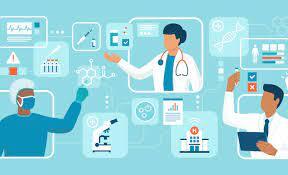Blog Information
- Posted By : clinfinite solutions
- Posted On : Aug 29, 2023
- Comments : 1
- Views : 107
- Category : General
- Description : Discover the comprehensive landscape of types of clinical trial services available, from study design to data analysis. Get insights into the key offerings that drive medical research forward.
- Location : Hyderabad, Telangana, India
Overview
Introduction
Clinical trials play a pivotal role in advancing medical knowledge and improving patient care. These trials are complex endeavors that require various services to ensure their success. In this article, we will delve into the diverse spectrum of Types of Clinical Trial Services, exploring each category's significance and contributions to medical research.
Exploring a Variety of Offerings
Study Design and Protocol Development
Study design and protocol development form the bedrock of any clinical trial. This stage involves meticulous planning to ensure the trial's objectives are met efficiently. Professionals in this area focus on creating a structured protocol that outlines the trial's purpose, methodology, participant criteria, and endpoints.
Site Selection and Management
Choosing suitable sites for clinical trials is crucial for accurate data collection. Site selection experts evaluate potential sites based on factors such as patient population, facilities, and adherence to regulatory requirements. Once selected, site managers oversee operations, ensuring compliance and efficient conduct of the trial.
Patient Recruitment and Retention
Recruiting and retaining participants is often a challenge in clinical trials. Patient recruitment services employ innovative strategies to identify eligible participants and engage them effectively. These services aim to minimize dropouts and ensure a diverse participant pool for robust results.
Data Collection and Monitoring
Accurate data collection and monitoring are vital to ensuring the validity of trial results. Professionals in this domain implement rigorous data collection protocols, often utilizing electronic data capture systems. They also conduct regular monitoring visits to ensure sites adhere to protocols and maintain data integrity.
Statistical Analysis and Interpretation
The data generated from clinical trials hold valuable insights that influence medical decisions. Statistical experts analyze the data using advanced methods, uncovering trends, correlations, and treatment effects. Their interpretations contribute to the understanding of a drug's efficacy and safety.
Regulatory Compliance and Ethics
Navigating the regulatory landscape is a critical aspect of clinical trials. Regulatory affairs specialists ensure that trials adhere to local and international regulations. They facilitate interactions with regulatory agencies, streamlining approvals and ensuring ethical conduct throughout the trial.
Drug Development and Manufacturing
Before a drug reaches clinical trials, it undergoes extensive development and manufacturing processes. Experts in this field focus on formulation, stability testing, and large-scale production. Their efforts result in the creation of investigational drugs used in clinical trials.
Medical Monitoring and Safety
Patient safety is paramount in clinical trials. Medical monitors oversee participants' well-being, promptly addressing adverse events. These professionals collaborate with site staff to ensure participant safety while maintaining the trial's scientific integrity.
Pharmacovigilance and Adverse Event Reporting
Pharmacovigilance professionals continue monitoring drug safety even after the trial concludes. They collect, assess, and report adverse events, contributing to post-marketing surveillance and ongoing risk assessment.
Data Management and Technology
Efficient data management is essential for handling the vast amounts of information generated during a trial. Data management experts develop databases, implement quality checks, and ensure data security. Technological advancements streamline data collection, storage, and analysis.
